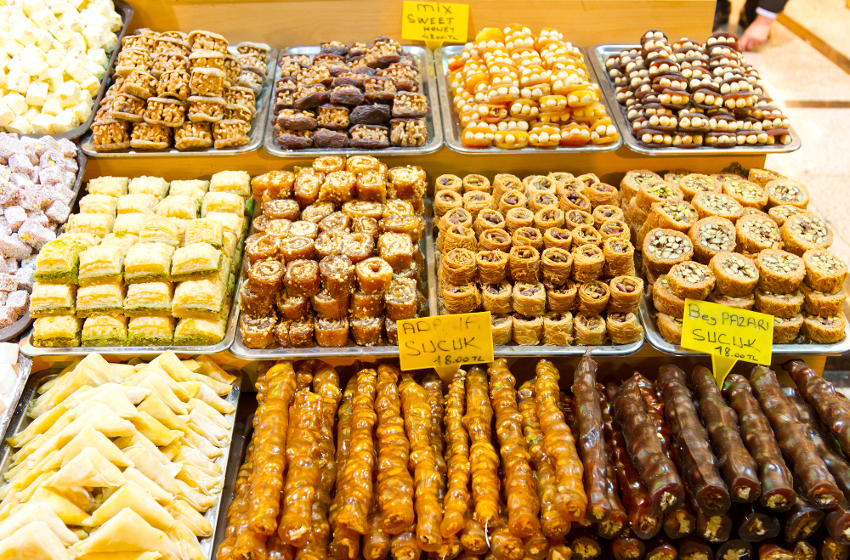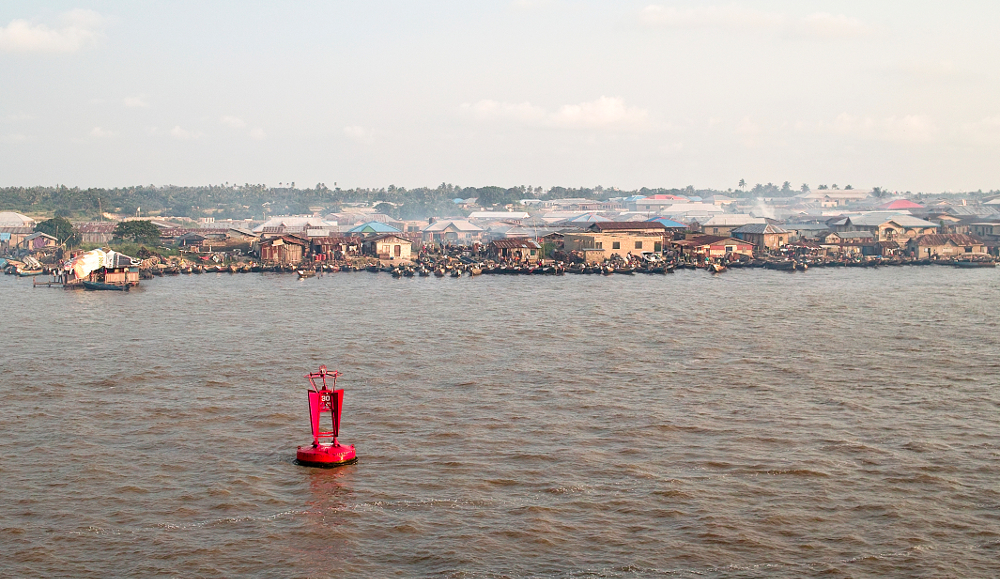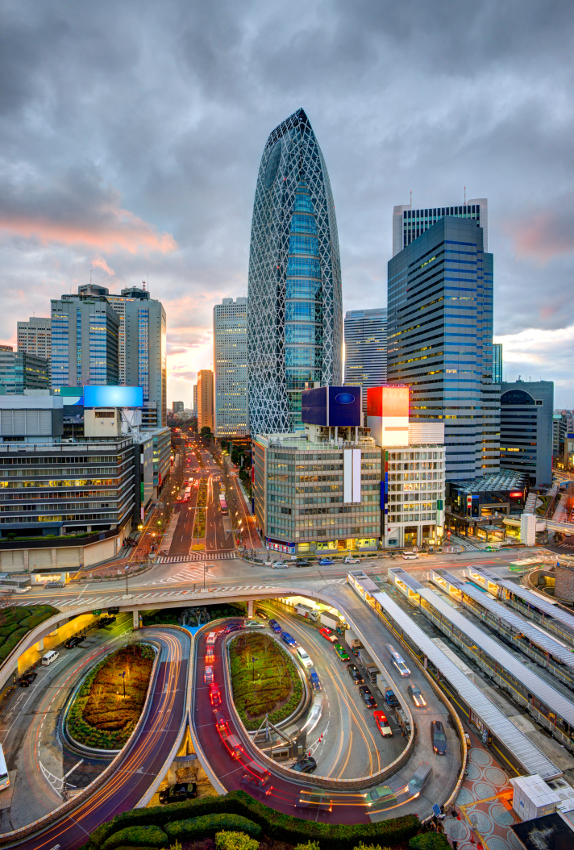What makes a city stand out? Is it food, architecture, or an awesome music scene?
At the Diplomatic Courier, we know how difficult it is to narrow down a large, bustling metropolis to one or two characteristics, and so we asked for our readers’ input. We chose 30 cities in five different categories, and asked for votes on our Facebook page and through Twitter using hashtag #VoteForYourCity in a contest that reached nearly 90,000 people around the world.
Which is the top city in public transportation? Which is the best city to get an education? Each city has a story to tell, and the cities that made it into our list are your choices for the top city in each category.
***
Top Architecture City: Singapore
Singapore, the world’s only island city-state and its fourth largest financial center, is home to some of the most innovative—and luxurious—architecture of the modern age. Since the 1990s, city planners have worked to bring unique architectural designs to the city in an effort to distinguish Singapore’s skyline, and in the process, the city has become an incubator for innovation in architecture, including hosting the World Architecture Festival each October. But features such as the swimming pool at Marina Bay Sands Resorts floating 650 feet above the ground is not all Singapore should be famous for.
Singapore has also become a world leader in sustainability and “smart city” developments. Named by Siemens’ 2011 “Asian Green City Index” as Asia’s Greenest City, Singapore’s skyline features beautifully designed buildings with rooftop gardens. The Parkroyal Hotel hosts nearly 15,000 square meters of lush gardens across several levels, all maintained by recovered rainwater.
Top Culinary City: Istanbul, Turkey

Napoleon Bonaparte once said, “If the earth were a single state, Istanbul would be its capital.” Located at the crossroads of three continents and multiple cultures, Turkey’s culinary heritage shows the paths of history through the region. In particular, Istanbul's own culinary heritage inherits many elements of Ottoman court cuisine, with a lighter use of spices, a preference for rice over bulgur, and a wider use of seafood. The Bosphorus, the Sea of Marmara, the Black Sea, and the Aegean are all within a day’s drive of Istanbul, making Kumkapi—a district of fish restaurants—one of the finest places for seafood in the world.
Although it incorporates traditions from the Middle East, Europe, and Central Asia, Istanbul blends eastern and western traditions into its own unique cuisine. And there is no shortage of places to find food. Istanbul's famous dishes—featuring beyti kebab, kadınbudu köfte, and baklava—are offered in cafes and meyhanes, fine dining restaurants and street vendors.
Top Musical City: TIE
Lagos, Nigeria

Lagos, estimated to become home to 24 million people by 2015, is a study in contradictions—resource rich, but impoverished; commercial, but with an uncertain power grid; on the move, yet snarled in poor traffic infrastructure. As it did in the United States, this life of contradictions and contrasts has given birth to Nigeria’s own iteration of hip-hop and rap—and the genre’s success and innovation is reaching into nightclubs everywhere from Nairobi to New York City. As Lagos breaks a path for African music to reach a global market, the variety of musical styles that can be found in the city today include not only Nigerian hip hop, but also highlife, juju, fuji, and Afrobeat.
Kuala Lumpur, Malaysia

Kuala Lumpur is rarely recognized as a global music powerhouse, but it is poised to become the next big thing in Asian pop music. Described as having a plethora of "local talent [that] sounds like the pop stars of tomorrow" and by Travel+Leisure as having a “steadily percolating” independent music scene, Kuala Lumpur’s nightlife is dominated by a diverse and talented crowd hungry for live music. As the independent music scene in the city seeks to emerge from its years of being underground in the 1980s and 1990s, it will need to deal with divides such as ethnicity and language heralding from Malaysia’s diverse demographics.
Top Education City: Toronto, Canada

Toronto, where nearly 30 percent of the population holds a university degree, is a center for education in Canada. Among Toronto’s cluster of post-secondary school options, the University of Toronto is ranked within the Top 20 world universities (alongside top U.S. and Asian schools). This focus on education, combined with a strong financial center and a push for greater technology access and innovation in the city, has landed Toronto as one the seven top Intelligent Communities of 2013, as well as 6th among global metropolitan areas in a global competitiveness survey.
Top Public Transportation City: Tokyo, Japan

To get around Tokyo, you will first be pointed towards Tokyo’s extensive public rail system—and a map of the system may just make your head spin. Public transportation network within Greater Tokyo is dominated by one of the world's most extensive urban rail networks. On any given day, nearly 40 million passengers use Tokyo’s rail systems, with an average density of 6 million people per line mile per year. To put this in perspective, the entire country of Germany, with the highest railway use in Europe, has 10 million daily train riders. Shinjuku Station alone is estimated have a daily passenger throughput of 3.64 million people, a number that officially cements the station as the busiest in the world with the Guinness Book of World Records.
But publicly run transportation is hardly the only option one has for getting around Tokyo, as the comprehensive transportation network also includes private rail, buses, motorcycle delivery services, and bicycling areas.
This article was originally published in the Diplomatic Courier's November/December 2013 print edition.


a global affairs media network
Top Global Cities: #VoteForYourCity

November 26, 2013
What makes a city stand out? Is it food, architecture, or an awesome music scene?
At the Diplomatic Courier, we know how difficult it is to narrow down a large, bustling metropolis to one or two characteristics, and so we asked for our readers’ input. We chose 30 cities in five different categories, and asked for votes on our Facebook page and through Twitter using hashtag #VoteForYourCity in a contest that reached nearly 90,000 people around the world.
Which is the top city in public transportation? Which is the best city to get an education? Each city has a story to tell, and the cities that made it into our list are your choices for the top city in each category.
***
Top Architecture City: Singapore
Singapore, the world’s only island city-state and its fourth largest financial center, is home to some of the most innovative—and luxurious—architecture of the modern age. Since the 1990s, city planners have worked to bring unique architectural designs to the city in an effort to distinguish Singapore’s skyline, and in the process, the city has become an incubator for innovation in architecture, including hosting the World Architecture Festival each October. But features such as the swimming pool at Marina Bay Sands Resorts floating 650 feet above the ground is not all Singapore should be famous for.
Singapore has also become a world leader in sustainability and “smart city” developments. Named by Siemens’ 2011 “Asian Green City Index” as Asia’s Greenest City, Singapore’s skyline features beautifully designed buildings with rooftop gardens. The Parkroyal Hotel hosts nearly 15,000 square meters of lush gardens across several levels, all maintained by recovered rainwater.
Top Culinary City: Istanbul, Turkey

Napoleon Bonaparte once said, “If the earth were a single state, Istanbul would be its capital.” Located at the crossroads of three continents and multiple cultures, Turkey’s culinary heritage shows the paths of history through the region. In particular, Istanbul's own culinary heritage inherits many elements of Ottoman court cuisine, with a lighter use of spices, a preference for rice over bulgur, and a wider use of seafood. The Bosphorus, the Sea of Marmara, the Black Sea, and the Aegean are all within a day’s drive of Istanbul, making Kumkapi—a district of fish restaurants—one of the finest places for seafood in the world.
Although it incorporates traditions from the Middle East, Europe, and Central Asia, Istanbul blends eastern and western traditions into its own unique cuisine. And there is no shortage of places to find food. Istanbul's famous dishes—featuring beyti kebab, kadınbudu köfte, and baklava—are offered in cafes and meyhanes, fine dining restaurants and street vendors.
Top Musical City: TIE
Lagos, Nigeria

Lagos, estimated to become home to 24 million people by 2015, is a study in contradictions—resource rich, but impoverished; commercial, but with an uncertain power grid; on the move, yet snarled in poor traffic infrastructure. As it did in the United States, this life of contradictions and contrasts has given birth to Nigeria’s own iteration of hip-hop and rap—and the genre’s success and innovation is reaching into nightclubs everywhere from Nairobi to New York City. As Lagos breaks a path for African music to reach a global market, the variety of musical styles that can be found in the city today include not only Nigerian hip hop, but also highlife, juju, fuji, and Afrobeat.
Kuala Lumpur, Malaysia

Kuala Lumpur is rarely recognized as a global music powerhouse, but it is poised to become the next big thing in Asian pop music. Described as having a plethora of "local talent [that] sounds like the pop stars of tomorrow" and by Travel+Leisure as having a “steadily percolating” independent music scene, Kuala Lumpur’s nightlife is dominated by a diverse and talented crowd hungry for live music. As the independent music scene in the city seeks to emerge from its years of being underground in the 1980s and 1990s, it will need to deal with divides such as ethnicity and language heralding from Malaysia’s diverse demographics.
Top Education City: Toronto, Canada

Toronto, where nearly 30 percent of the population holds a university degree, is a center for education in Canada. Among Toronto’s cluster of post-secondary school options, the University of Toronto is ranked within the Top 20 world universities (alongside top U.S. and Asian schools). This focus on education, combined with a strong financial center and a push for greater technology access and innovation in the city, has landed Toronto as one the seven top Intelligent Communities of 2013, as well as 6th among global metropolitan areas in a global competitiveness survey.
Top Public Transportation City: Tokyo, Japan

To get around Tokyo, you will first be pointed towards Tokyo’s extensive public rail system—and a map of the system may just make your head spin. Public transportation network within Greater Tokyo is dominated by one of the world's most extensive urban rail networks. On any given day, nearly 40 million passengers use Tokyo’s rail systems, with an average density of 6 million people per line mile per year. To put this in perspective, the entire country of Germany, with the highest railway use in Europe, has 10 million daily train riders. Shinjuku Station alone is estimated have a daily passenger throughput of 3.64 million people, a number that officially cements the station as the busiest in the world with the Guinness Book of World Records.
But publicly run transportation is hardly the only option one has for getting around Tokyo, as the comprehensive transportation network also includes private rail, buses, motorcycle delivery services, and bicycling areas.
This article was originally published in the Diplomatic Courier's November/December 2013 print edition.


